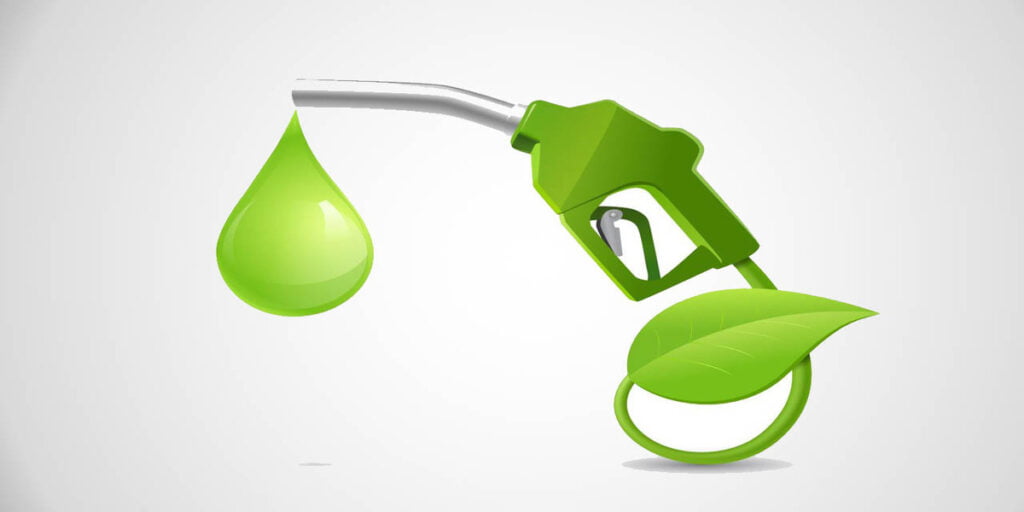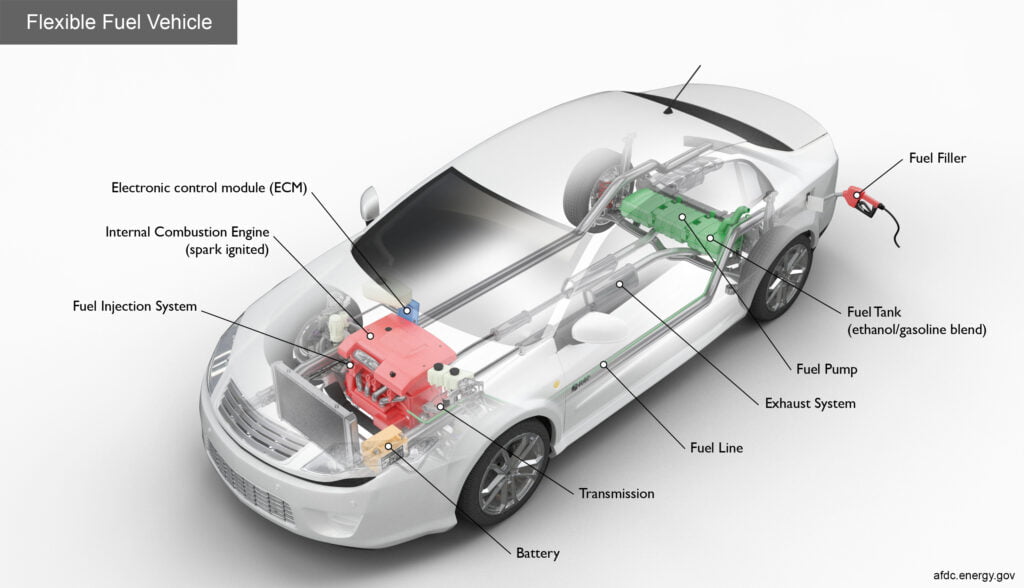
Table of Contents
In the most recent Budget 2023, a number of incentives were established for industry leaders in order to promote India’s move towards E20 Fuel by 2025. Although ethanol blending objectives have been expedited, there is still misunderstanding about what E20 fuel actually is and how it how it affects automobiles. Let us learn about the benefits of E20 fuel and why it will eventually replace conventional petrol in India’s Automotive Industry
What is E20 Fuel?
E20 fuel, also known as Ethanol 20, is a blend of 20% ethanol and 80% gasoline. Ethanol, a renewable biofuel derived from plant matter, is considered a cleaner alternative to fossil fuels. By blending ethanol with gasoline, E20 fuel offers several benefits for both the environment and our vehicles. E20 fuel by 2025 will reduce greenhouse gas emissions and decrease the carbon footprint.
Ethanol is a low-carbon fuel, which means it releases fewer harmful pollutants when burned compared to gasoline alone. This helps combat climate change and improves air quality in our communities. Additionally, E20 fuel promotes energy security. Ethanol can be produced from various sources such as corn, sugarcane, or even cellulosic biomass. This not only strengthens our economy but also enhances our energy independence.
Moreover, E20 fuel is compatible with most modern vehicles without requiring any modifications. Its higher ethanol content provides higher octane ratings, resulting in improved engine performance. It also helps reduce engine deposits and corrosion, increasing the lifespan of our beloved cars. As we strive for a greener and more sustainable future, E20 fuel offers a promising solution. Its environmentally friendly nature, energy security benefits, and compatibility make it an exciting fuel option for the transportation sector.

Benefits of E20 Fuel?
The automotive industry is embracing sustainable technologies, and one notable development is the adoption of E20 fuel by 2025. Comprising 20% ethanol and 80% gasoline, E20 fuel offers numerous advantages in terms of environmental friendliness and performance.
- Environmental Benefits: E20 fuel benefits a greener alternative to traditional gasoline, significantly reducing greenhouse gas emissions. A healthier environment and better air quality will result from the 20% ethanol content, which will lessen the amount of carbon dioxide and other hazardous pollutants emitted into the atmosphere.
- Engine Performance: E20 fuel’s higher ethanol content provides a higher octane rating, resulting in improved engine performance. Vehicles running on E20 experience smoother acceleration, increased power.
- Engine Maintenance and Longevity: The clean-burning properties of E20 fuel help minimize engine deposits and reduce the risk of corrosion. By using E20, vehicle owners can enjoy a increased lifespan for their engines, resulting in reduced maintenance costs and a more sustainable approach to vehicle ownership
- Compatibility and Accessibility: E20 fuel is compatible with most modern vehicles without requiring any modifications. This accessibility allows a wider range of drivers to take advantage of its benefits, contributing to a more inclusive and sustainable automotive industry by 2025.
- Cost efficient: E20 Fuel will significantly save costs by decrease in crude oil imports the blended fuel will be more affordable to consumers at a considerable price.
Disadvantages of E20 Fuel
As the automotive industry explores greener alternatives to conventional gasoline, E20 fuel by 2025, a blend of 20% ethanol and 80% gasoline, stands out as a potential game-changer. However, it is essential to approach this transition with a balanced perspective, understanding the potential disadvantages of E20 fuel.
- Fuel Efficiency: Compared to gasoline, E20 fuel may have a slightly lower energy content, resulting in reduced fuel efficiency. While the difference may be minimal, vehicles running on E20 might experience a slight decrease in mileage per litre. However, advancements in engine technology and ongoing research may mitigate this issue over time.
- Consumer Awareness and Education: Another hurdle is raising awareness and educating consumers about E20 fuel. Many consumers may be unfamiliar with the benefits and compatibility of E20 fuel. A comprehensive educational campaign highlighting its advantages, dispelling myths, and clarifying vehicle compatibility can help build trust and increase adoption.
- Compatibility with Older Vehicles: E20 fuel may not be compatible with older vehicles, particularly those designed to run on traditional gasoline. The higher ethanol content in E20 can cause compatibility issues and potential damage to certain engine components. Vehicle owners should consult their manufacturer’s guidelines or consider fuel compatibility before using E20.
What is Flex Fuel Vehicles?

Flex fuel vehicles, also known as flexible fuel vehicles or FFVs, are a revolutionary category of automobiles that have gained significant attention in recent years. These vehicles are engineered to run on a diverse range of fuel blends, providing drivers with the flexibility to choose between traditional gasoline and alternative fuels like ethanol
One of the primary advantages of flex fuel vehicles is their positive impact on the environment. Ethanol, a common component in flex fuel vehicles are derived from renewable sources such as corn, sugarcane, or agricultural waste. The distinguishing feature of flex fuel vehicles lies in their adaptability to different fuel compositions. They come equipped with specialized components and technologies that can adjust to varying proportions of gasoline and alternative fuels. These blends typically include ethanol, often labelled as E85, which contains 85% ethanol and 15% gasoline
Promoting E20 Fuel by 2025: Government’s Initiatives
India is taking bold strides towards a sustainable and eco-friendly transportation system with its plan to introduce E20 fuel across the country by 2025. This move signifies a significant shift towards reducing emissions, promoting renewable energy sources, and enhancing energy security. Rising crude oil prices are a result of India’s excessive reliance on imports to satisfy around 85% of its fuel needs at present. However, India would see significant cost savings if it adopted fuel mixed with 20% ethanol
The Indian government has introduced policies and initiatives to facilitate the widespread adoption of E20 fuel by 2025. These include incentives, subsidies, and regulatory measures to encourage fuel providers, automobile manufacturers, and consumers to embrace E20 fuel technology by 2025. Such support creates a positive environment for the development of infrastructure and the production of ethanol.
The Indian government has implemented a robust policy framework to support the adoption of E20 fuel. By setting mandates and targets, such as the requirement for a certain percentage of ethanol blending in gasoline, the government encourages fuel providers to increase the availability of E20 fuel across the country. These mandates provide the necessary impetus for the transition towards cleaner fuels.
Updates on E20 Fuel compatible Cars in India
- Maruti Suzuki – All Maruti cars are updated and compatible with E20 Fuel.
- Tata Motors – All Tata cars are updated and compatible with E20 Fuel
- Hyundai – Most of the Hyundai cars like Creta, Alcazar, Venue & New Verna are updated and compatible with E20 Fuel.
- KIA – All KIA cars are updated and compatible with E20 Fuel.
- Honda – Honda City & Amaze are the only 2 cars available in India and are compatible with E20 Fuel
- Skoda – Skoda Kushaq & Slavia are compatible with E20 Fuel
- Volkswagen – Volkswagen Taigun & Virtus are compatible with E20 fuel.
Conclusion
As the automotive industry pivots towards sustainability, E20 fuel emerges as a frontrunner, offering advantages that benefit both drivers and the environment. With improved engine performance, reduced emissions, and accessibility, E20 fuel is propelling us towards a cleaner and more efficient future on the roads
Also Read: Automotive Industry in India 2023
